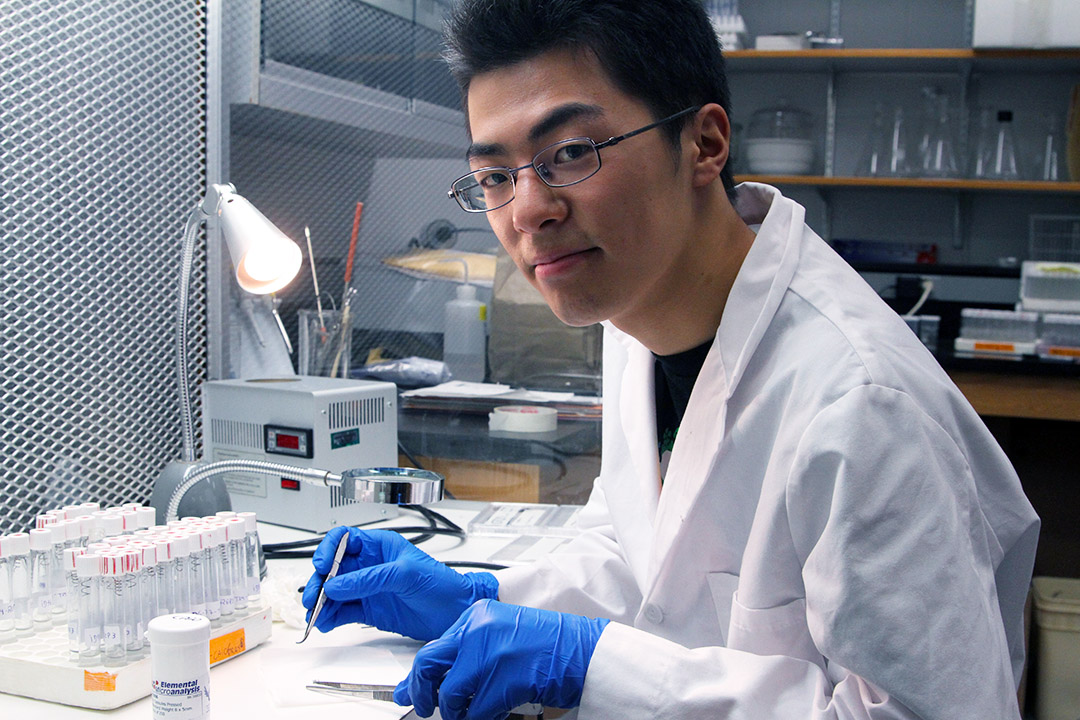
U of S and Iwate University partner on language and agriculture program
The Language Centre at the University of Saskatchewan hosted its fifth cohort of the Iwate University English and Agriculture Program this fall.
By Brett MakulowichThis unique program combines English as a Second Language (ESL) and agricultural research, with a total of 62 students from Iwate University in Iwate, Japan having participated in the program so far.
The program is three weeks in length and integrates research labs at the College of Agriculture and Bioresources, with ESL classes at the Language Centre. Students stay with homestay families in Saskatoon and take part in class field trips.
“I choose this program so I can improve my English and conduct research in a foreign country,” said Daisuke Oikawa, a student from the most recent cohort in September.
Oikawa researched the relationship between soil and plants during his time at the U of S.
“The students are surprised by Saskatchewan’s large scale agricultural practices,” said Abidur Rahman, professor at Iwate University. “They are not at all similar to Japan where small plot agriculture is practiced.”
Rahman worked with Professor Karen Tanino of the College of Agriculture and Bioresources at the U of S to create the combined ESL and agriculture program. They began the program as a bridge to the Dual PhD in Plant Sciences offered by the U of S and the United Graduate School of Agricultural Sciences in Japan. With the majority of the ESL and agriculture program participants being undergraduate students, it serves as a great introduction to the U of S for graduate and post-doctoral studies.
“Language Centre Special Programs such as the combined Iwate University English and Agriculture Program offer international students an exceptional experience to learn English, experience Canadian culture, and conduct research in their chosen field,” said David Parkinson, director of the U of S Language Centre. “Additionally, these programs help the U of S build global relationships, recruit students and increase campus diversity.”

